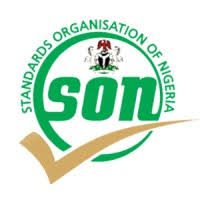
Pantami decries several ‘threats’ to life over NIN policy implementation
…Says FG has increased National Identity Database by 150% in two years
By Ogaga Ariemu
Minister of Communications and Digital Economy, Prof Isa Pantami has revealed that he received several threats from some citizens following the National Identity Policy Implementation.
Also, Pantami disclosed that President Muhammadu Buhari’s administration has increased National Identity Database by 150 per cent in two years.
Pantami made this disclosure in his remarks at this year’s National Identity Day commemoration titled, ‘Institutions as Critical Stakeholders for Citizens’ Mobilisation,’ in Abuja during the weekend.
He lauded the success story of the policy despite stiff opposition.
He added that, the Digital Economy sector remitted more money to the Federal Government’s confers more than any other sector in Nigeria.
Explaining the importance of digital identity to development, he explained that, “According to World Bank, one billion people don’t have any legal identification specially in Africa. That is why we have uncountable challenges in Africa, because we don’t have data to plan for our citizenry.”
He emphasized that Nigeria has captured more citizens into her National Identity Database than other African countries.
The Minister said that the essence of the event is to remind citizens why digital identity is important.
“We can get only get our digital economy right when we continue to improve and encourage our citizens to enrol in our national data base. By the time I took supervision of NIMC, the total number of registration centres were not up to 1,000 but today, we have over 5,000.
“Today our national data base is on auto drive. We have established over 19 national policies and all of them are being implemented. This has never happened in the history of Nigeria. When we commenced the process, many people turned against me,” he said.
“My life was threatened because of the introduction of NIN and sim registration on BBC radio and many more and I resisted believing that nobody can control my life in this world only Almighty God. We resisted and now the process is working. Sometimes I can sleep for one month without speaking to NIMC and there is no any problem and most of our citizens that were fighting at least are now silent,” he revealed.
Earlier, the Director General/CEO, NIMC reiterated commitment to partner traditional rulers, religious leaders and other stakeholders to ensure that majority in rural communities are captured.
He further added that the Commission has achieved tremendous infrastructural development resulting to increased NIN enrolment across the country in the last three years.
“NIMC has made great strides on so many fronts in the last three years. From just over 1,000 enrolment centres and 2,000 enrolment devices across the country, NIMC in partnership with its licensed enrolment partners now has over 15,000 enrolment centres and over 29,000 enrolment devices deployed nationwide. This is one of the reasons enrolments have increased tremendously with over 89 million NINs generated successfully.
“On the international level, NIMC today has diaspora enrolment centres in over 40 countries, with more centres and countries scheduled to be added in the coming months. This gives Nigerians in the Diaspora opportunities to enrol and have their national identity even while outside the shores of Nigeria,” he stated.
Chairman, National Population Commission(NPC), Nasir Kwarra, Executive Chairman of the ID4Africa, Dr. Joseph Atick, Representatives of National Information Technology Development Agency, Director IT Infrastructure Solutions, Dr Usman Abdullahi, Nigerian Communications Commission(NCC), other agencies were presence.
Recall that in April Buhari directed that Implementation of NIN-SIM Policy and ordered Telephone companies (Telcos) to bar all outgoing calls on unlinked cell phone lines. Subsequently Government agencies such as Nigeria Immigration Service(NIS), Federal Road Safety Corp(FRSC) and others made NIN mandatory.
In 2019, the Federal Government of Nigeria approved the recognition and observance of September 16 of every year as National Identity Day.



